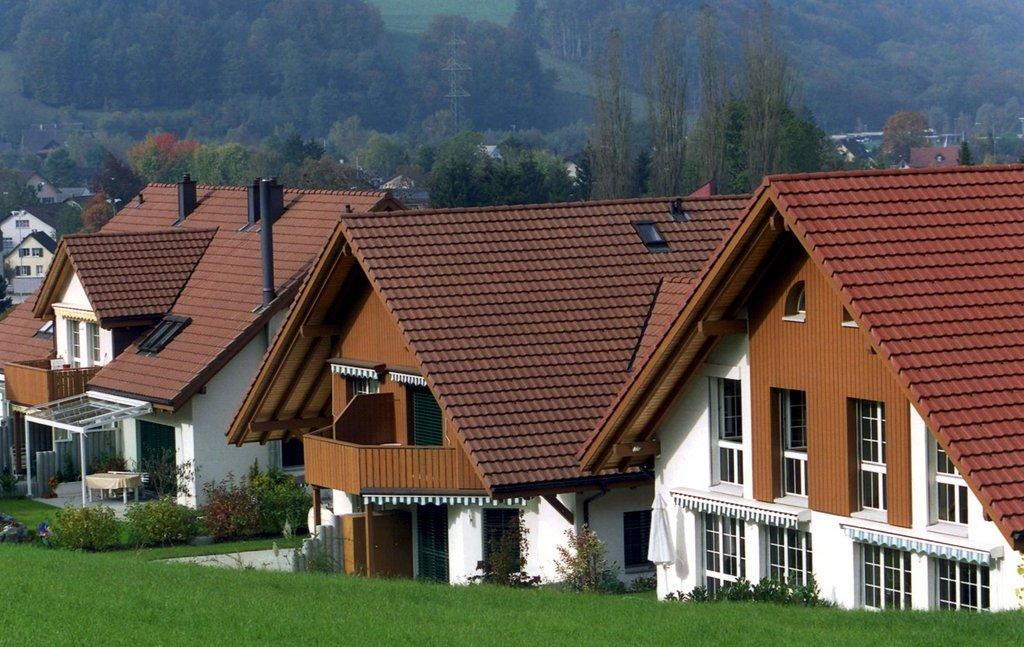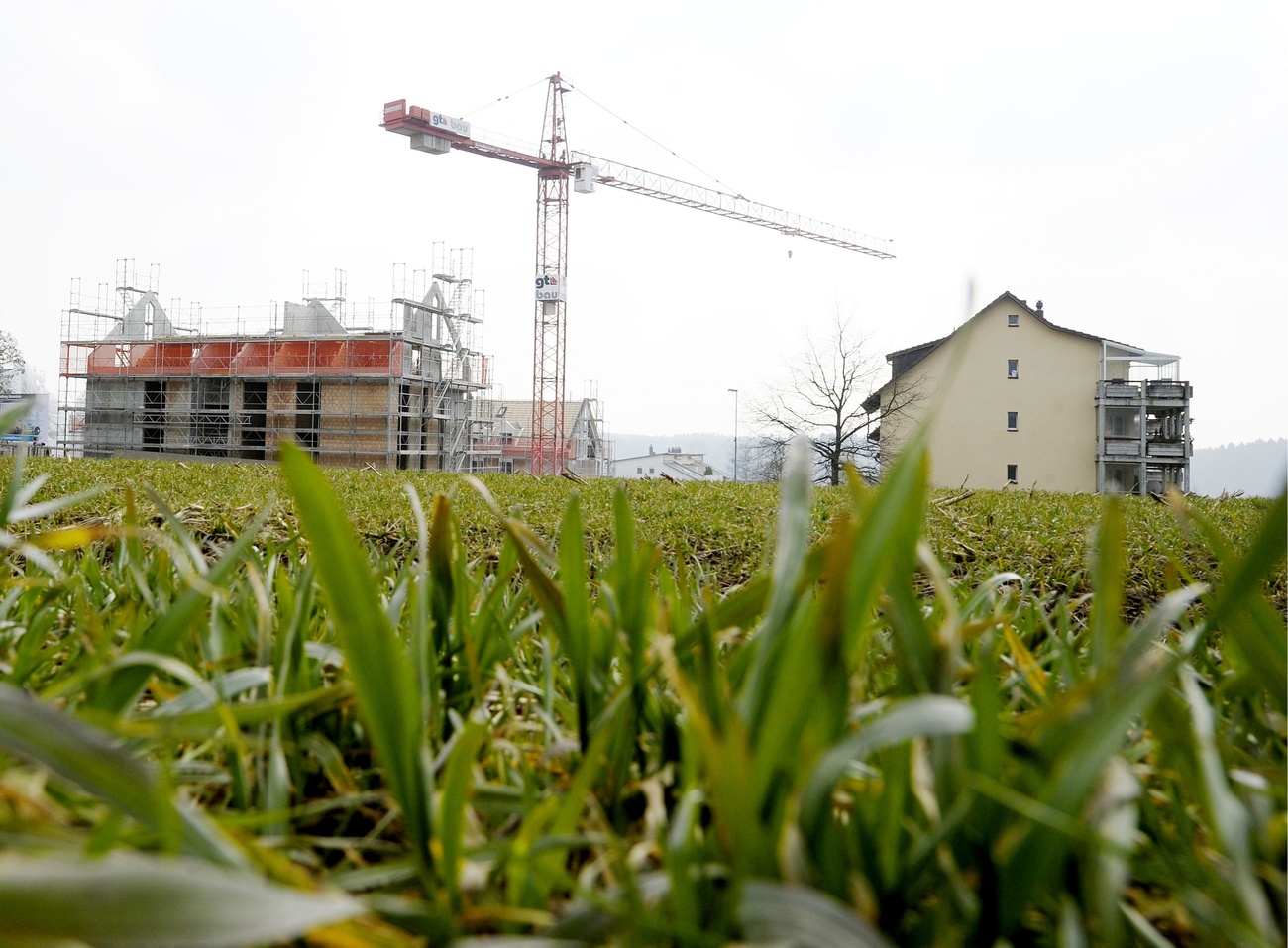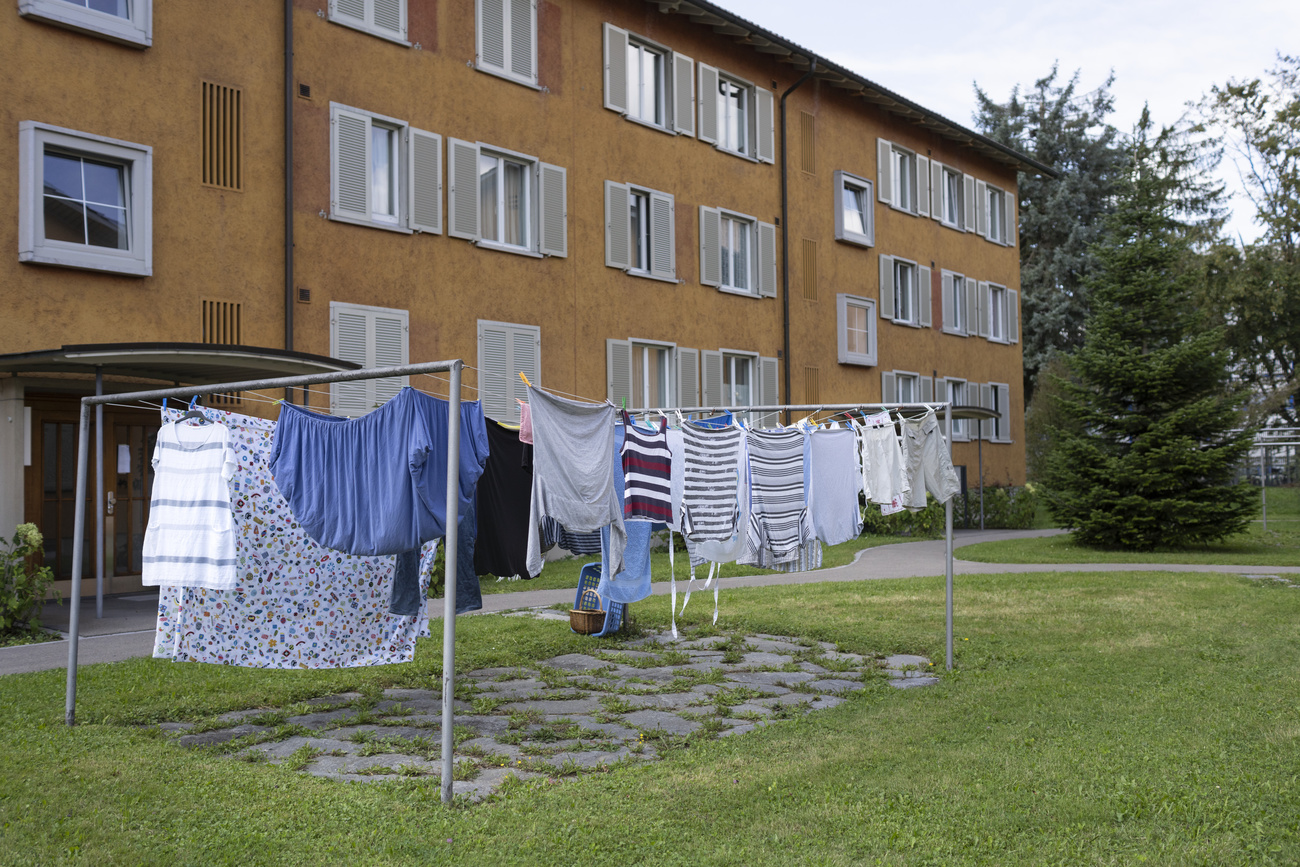
Will Switzerland finally do away with imputed rental-value tax on homeowners?

In Switzerland, homeowners who live in their own property must pay tax on it as if they were renting it out. It is a complex fiscal construct that also provides opportunities for tax breaks. Parliament now wants to abolish it. The matter will be put to a nationwide vote on September 28.
How did this vote come about?
On September 28, Swiss voters will decide whether to abolish the taxation of imputed rental value for homeowners. The issue has been subsumed in another bill, the Federal Decree on Cantonal Taxes on Second HomesExternal link.
This may look like a mislabelling, but it stems from the years of parliamentary debate on the matter.
Imputed rental value can thus only be abolished if the newly proposed cantonal tax is adopted.
Here is how this came about. In parliament, cantons in mountainous regions recently opposed the abolition of imputed rental value. The reasons are clear: levying a tax on the imputed rental value of second homes brings in significant revenue. If this goes, cantonal coffers will feel the pinch.
To get these same cantons on board, parliament therefore wanted to give them the option to impose taxes on second homes in a different way. To do so, the constitution has to be amended, for which a federal vote is needed.

This is how the new tax on holiday apartments and houses simultaneously became a referendum on the abolition of imputed rental value as approved by parliament. If a majority of voters, and a majority of cantons vote no, the desired change in the system for taxing residential propertyExternal link will stall. If both say yes, it will come into effect.
Sounds complicated? This is just the start.
What is imputed rental value?
Imputed rental value is a notional rental income attributed to homeowners who live in their own property. The idea behind it is to maintain a balance between renters and owners.
Since homeowners do not pay rent, they have an economic advantage over tenants. To level the playing field, they must therefore pay tax on the imputed rental value of their property.
The cantonal governments thus set an assumed annual rent for homeowners and add this amount to their taxable income. The imputed rental value is therefore a “fictitious income” that is recognised for tax purposes and can be quite substantial.
Abolishing the taxation of imputed rental value would, however, also spell the end of deductions for maintenance costs and debt interest. This is the compromise that parliament reached for the proposed reform.
The new system also includes a cushion for new buyers, as mortgage debts are highest immediately after purchase of a property. The interest on these would still be deductible for ten years – in gradually decreasing amounts.
The current set-up is especially hard on retired people, who can find themselves caught in a trap. The heavier tax burden puts particular strain on those who suddenly have to live on a modest pension after losing their professional income.

What is more, high mortgage debts – for which there was a strong incentive until retirement – often become a major problem after retirement. Banks follow strict rules and will only renew mortgages if they are affordable thanks to an income or a pension.
For many people in Switzerland, therefore, home ownership becomes onerous in old age. According to the government’s calculations, pensioners would benefit most from the abolition of imputed rental value.
On the political stage, the right-wing Swiss People’s Party, the centre-right Centre Party and the centre-right Radical-Liberal Party, in particular, are in favour of the reform.
What do the opponents of the reform want?
Supporters of the current system include, above all, the left-wing Social Democratic Party and the Green Party, as well as the Swiss Tenants’ Association. While the Tenants’ Association fears the end of a working balance, the Social Democrats are primarily concerned about the loss in tax revenues.

The Swiss cantons have a certain leeway when calculating the imputed rental value. As a rule, it should be at least 60% of what the owners would receive if they rented out their property.
What do critics of the imputed rental value say?
Imputed rental value is particularly unpopular among homeowners. Many do not understand what it is for. Politicians have already made several attempts to abolish this fiscal construct. The most recent one failed at the ballot box in 2012, when 53% of voters were against doing away with this tax.
In the current low-interest environment, taxation of the imputed rental value puts a heavier burden on homeowners. Their assumed notional income stays the same, while interest costs – which can be deducted from taxes – have plummeted. A recent federal government analysisExternal link thus found that an estimated 80% of homeowners would benefit from the reform in the current interest-rate environment.
The system as it stands today also offers incentives for homeowners, however. They can deduct not just the debt interest from their taxes but also expenses for refurbishments and maintenance. This helps lessen the burden of the imputed rental value, and many owners use both options to optimise their taxes.
Opponents of today’s set-up, meanwhile, also see this as a perverse incentive – as it rewards the taking out and maintaining of mortgages. This is one reason why Swiss properties and households are so highly indebted by international standards.
According to the Social Democratic Party, the loss of revenue would be a blow for Switzerland at a time when the federal government wants to implement far-reaching cuts as part of a major austerity package.
Just how great the shortfall in tax revenue would be for the government depends largely on future mortgage rates. The higher they are in the future, the lower the impact of the reform will be on federal and cantonal tax revenues.
In its campaign, the Social Democratic Party argues that relieving the burden on “rich property owners” would cost Switzerland CHF2 billion ($2.5 billion) a year. This calculation is based on a mortgage interest rate of between 1% and 1.5%.
The Federal Tax Administration estimates the impact of the proposed reform as followsExternal link. With interest rates of up to just under 3%, the federal government and cantons would lose out financially. With interest rates of 3% and above, they would benefit from the change. Most recently, in 2022 and 2023, ten-year fixed-rate mortgages in Switzerland stood at above 3%.
The cantonal governments are also sceptical about the change to the system. While the mountain cantons, in particular, can make up for the shortfall with a tax on second homes, it is doubtful whether all of them will actually be able to implement this in full politically.
The banks are also against the reform. They benefit greatly from the current set-up thanks to the tax incentives on mortgage debt. This gives a big boost to their mortgage business.
The business community, meanwhile, is divided. The current system rewards investment in property, which benefits the construction industry. But, as the Homeowners’ Association argues, doing away with imputed rental value would leave households with more money to keep their properties up to scratch.

More
Mortgages in Switzerland: how the system works
What next if the reform is accepted?
Even if the bill being voted on has a different name and is ostensibly “only” about a tax on second homes, a yes-vote would mean the definitive, nationwide end of imputed rental value. The reform would then be implemented, and the new system would come into effect after a transition period of around two years.
It remains to be seen how cantons in mountainous regions would handle the compensation option. They would be allowed to levy a tax on second homes. The individual cantons would have to work out how to do this in their respective governments and parliaments. Further votes on a second-home tax would thus likely follow in the cantons.
To sum up
Indubitably, the question is not just complex but also tangled. Anyone who wants to abolish imputed rental value must vote yes at the ballot box. And anyone who wants to keep it must vote no.
Voting recommendations
Yes
Federal Council, House of Representatives, Senate
Swiss People’s Party, Radical-Liberal Party, Centre Party, Swiss Evangelical Party
Swiss Trade Association, Homeowners’ Association
No
Social Democratic Party, Green Party
Conference of Cantonal Governments, Tenants’ Association, cantons in mountainous regions

More
Home owners and tenants wary of reform plans
Edited by Samuel Jaberg/Marc Leutenegger. Adapted from German by Julia Bassam/gw.

In compliance with the JTI standards
More: SWI swissinfo.ch certified by the Journalism Trust Initiative










































You can find an overview of ongoing debates with our journalists here . Please join us!
If you want to start a conversation about a topic raised in this article or want to report factual errors, email us at english@swissinfo.ch.